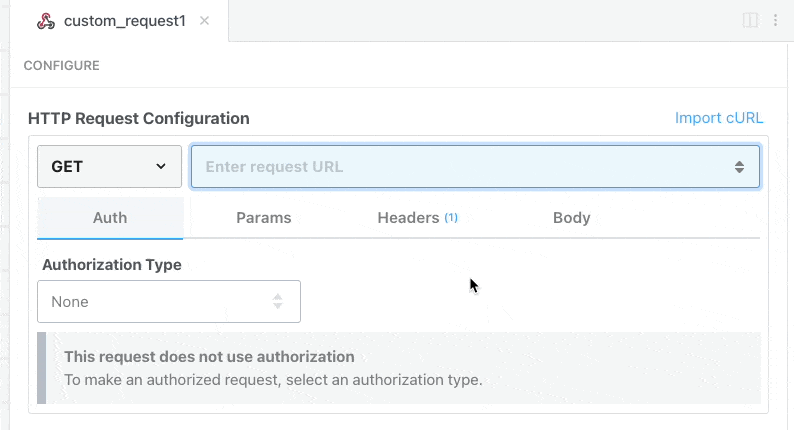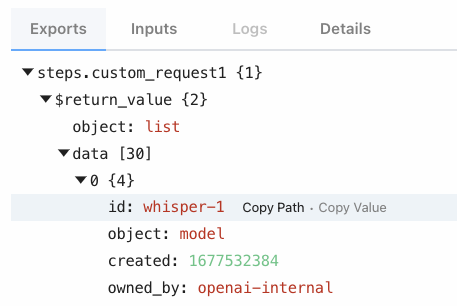What do you want to automate
with Shift4 and HTTP / Webhook?
Prompt, edit and deploy AI agents that connect to Shift4, HTTP / Webhook and 3,000+ other apps in seconds.
Trusted by 1,000,000+ developers from startups to Fortune 500 companies
Popular Ways to Connect Shift4 with HTTP / Webhook#
Popular Shift4 and HTTP / Webhook Triggers#
Get a URL and emit the full HTTP event on every request (including headers and query parameters). You can also configure the HTTP response code, body, and more.
Get a URL and emit the HTTP body as an event on every request
Overview of Shift4#
The Shift4 API provides robust payment processing capabilities, enabling secure transactions for various business needs. On Pipedream, you can leverage this API to create automated workflows that respond to events, handle payments, and sync transaction data with other services. By integrating Shift4 with Pipedream, you unlock a realm of possibilities for automating payment operations, analyzing sales data, and improving customer experiences with real-time actions.
Connect Shift4#
import { axios } from "@pipedream/platform"
export default defineComponent({
props: {
shift4: {
type: "app",
app: "shift4",
}
},
async run({steps, $}) {
return await axios($, {
url: `https://api.shift4.com/charges`,
auth: {
username: `${this.shift4.$auth.api_key_secret}`,
password: ``,
},
})
},
})
Overview of HTTP / Webhook#
Build, test, and send HTTP requests without code using your Pipedream workflows. The HTTP / Webhook action is a tool to build HTTP requests with a Postman-like graphical interface.

Point and click HTTP requests
Define the target URL, HTTP verb, headers, query parameters, and payload body without writing custom code.

Focus on integrating, not authenticating
This action can also use your connected accounts with third-party APIs. Selecting an integrated app will automatically update the request’s headers to authenticate with the app properly, and even inject your token dynamically.

Pipedream integrates with thousands of APIs, but if you can’t find a Pipedream integration simply use Environment Variables in your request headers to authenticate with.
Compatible with no code actions or Node.js and Python
The HTTP/Webhook action exports HTTP response data for use in subsequent workflow steps, enabling easy data transformation, further API calls, database storage, and more.
Response data is available for both coded (Node.js, Python) and no-code steps within your workflow.

Connect HTTP / Webhook#
// To use any npm package on Pipedream, just import it
import axios from "axios"
export default defineComponent({
async run({ steps, $ }) {
const { data } = await axios({
method: "GET",
url: "https://pokeapi.co/api/v2/pokemon/charizard",
})
return data.species
},
})
Community Posts#

